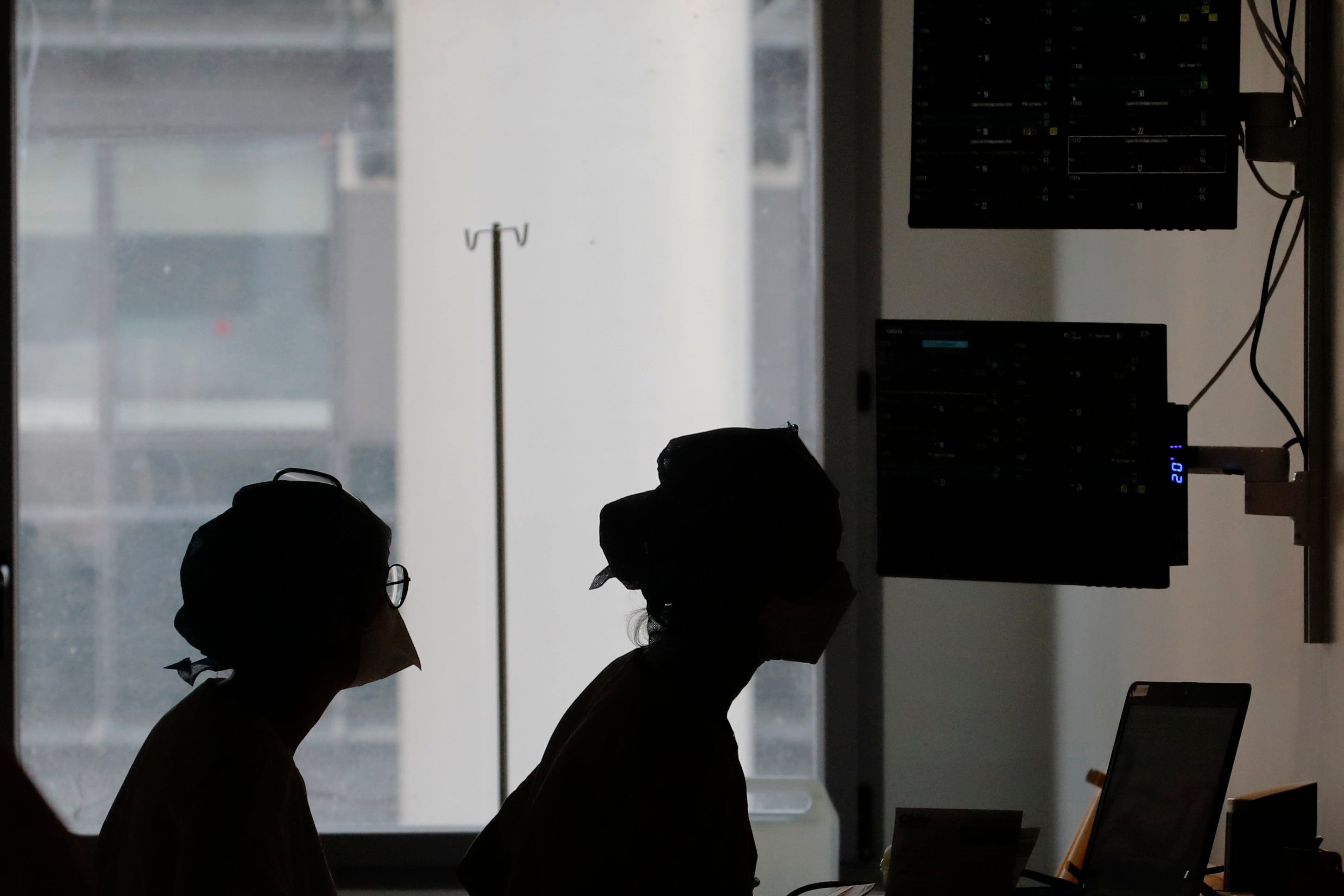With COVID on the job: France allows infected medics to work
France is allowing medics and health workers who are infected with the coronavirus but have few or no symptoms to keep treating patients rather than self-isolate

Your support helps us to tell the story
From reproductive rights to climate change to Big Tech, The Independent is on the ground when the story is developing. Whether it's investigating the financials of Elon Musk's pro-Trump PAC or producing our latest documentary, 'The A Word', which shines a light on the American women fighting for reproductive rights, we know how important it is to parse out the facts from the messaging.
At such a critical moment in US history, we need reporters on the ground. Your donation allows us to keep sending journalists to speak to both sides of the story.
The Independent is trusted by Americans across the entire political spectrum. And unlike many other quality news outlets, we choose not to lock Americans out of our reporting and analysis with paywalls. We believe quality journalism should be available to everyone, paid for by those who can afford it.
Your support makes all the difference.France is allowing health workers who are infected with the coronavirus but have few or no symptoms to keep treating patients rather than self-isolate, an extraordinary stop-gap measure aimed at alleviating staff shortages at hospitals and other medical facilities caused by an unprecedented explosion in infections.
The special exemption to France's quarantine rules being rolled out to hospitals, elderly care homes, doctors' offices and other essential health services testifies to the growing strain being placed on the French medical system by the fast-spreading omicron variant.
It is a calculated risk, with the possibility that COVID-positive health workers and carers could infect colleagues and patients weighed against what the government says is a need to keep essential services running.
Outside the health sector, for people not covered by the special exemption, France's quarantine rules require at least five days of self-isolation for fully vaccinated people who test positive.
With the especially contagious omicron variant causing surges in infections in many countries, governments and industries have warned that self-isolation rules are leading to staff shortages across a range of sectors.
In some places, quarantines have been shortened, including France, to get workers back to their posts. But in Europe France appears to be alone in now also opening up the possibility for health care personnel to work while infected.
There are increasing signs that the new variant causes less severe disease. But the huge numbers of new infections are still sending increasing numbers of people to hospitals, putting them under pressure, especially when medical workers are absent, too.
Hospital leaders said the new flexibility from self-isolation for health workers in France would help them plug staffing holes if and when they open up.
“If the system becomes very strained and 50% of our staff are positive, the less symptomatic will come to work because the patients will still need to be cared for,” said Prof. Marc Leone, head of anesthesiology at the North Hospital in the southern city of Marseille
“But we're not in that situation yet” he said.
The new rules were detailed in a Health Ministry alert message that was addressed Sunday to hospitals, care facilities and health authorities and was seen by The Associated Press. The new rules are being rolled out this week.
The ministry alert said France's deluge of virus infections poses “a major risk of disruption to the offer of care.” It described the measure as “exceptional and temporary" and said it will be lifted when the system isn't so saturated with virus cases.
The exemption opens the possibility for doctors, hospital staff, and carers for the disabled and other vulnerable people to keep working despite testing positive, on condition that they are fully vaccinated and aren't coughing and sneezing.
The Health Ministry instructions say that, where possible, the infected workers shouldn't be in contact with non-vaccinated patients or those at greater risk of severe illness with COVID-19.
The ministry said they also must limit as much as possible their interactions with colleagues and cannot take part in shared activities where face masks are taken off, such as breaks for food and drinks.
With Europe’s highest number of confirmed daily virus cases, France is in an increasingly challenging position.
France’s average daily case load has more than doubled in a week, and the country reported a record-smashing 271,686 daily virus cases on Tuesday as omicron-driven infections race across the country, burdening hospital staff and threatening to disrupt health care, transport, schools and other services.
More than 20,000 people are hospitalized with the virus in France, a number that has been rising steadily for weeks but not as sharply as the infection rates.
COVID-19 patients fill more than 72% of France’s ICU beds, and a once-renowned health care system is again showing signs of strain. Most virus patients in ICUs are not vaccinated, though 77% of the population has had at least two doses.
More than 123,000 people with the virus have died in France, among the world’s higher recorded death tolls.